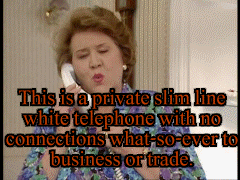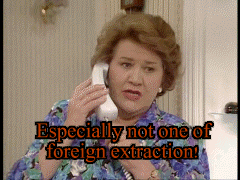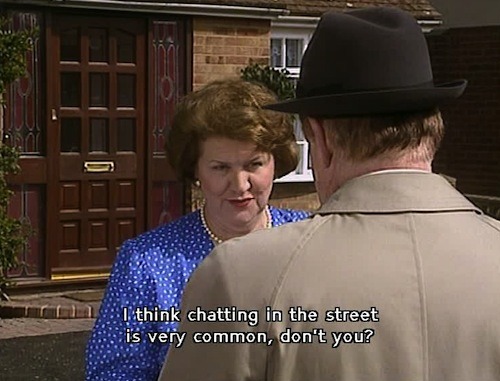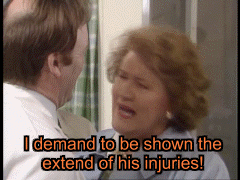This, the second of a three-part blog, attempts to illustrate a very disturbing pattern I have observed in behaviour of many Chinese over the years, both in China and internationally: great care in appearances, but a lack of accompanying substance.
It is divided into many chapters, each discussing a specific aspect of China in which the behaviour manifests. The chapters in this part are bolded below:
1. Intro
2. Education
3. Language
4. Family
5. Hospitals
6. Hygiene
7. Economy
8. Law
9. Politics
10. Culture
11. History & Mythology
12. Fiction & Television
13. Society
14. Racism
15. Sexuality
16. Biology
17. Propaganda
18. Synopsis & Credits

ECONOMY:
The skyrocketing real-estate market is what is driving the success of China. Too many people, everyone scuttling to buy a home amidst soaring house prices.
And when you have a home, does that mean you can lead a good life? Well, if access to local health care has anything to do with it, probably not.
It means you can pretend to lead a happy life! Posturing is a vital survival skill in a society where the weak are irrelevant, and the strong will prey upon them given the opportunity. "Look at how well-connected I appear to be because of all my conspicuous luxuries - I'll even pretend to be lazy and incompetent to augment my image, because I'm ashamed to work hard for what I have.
Rich people might look down on me if they knew how hard I have to work, and that will brand me an outsider."
Houses are the epitomy of windowdressing, since they have actual dressed-up windows. I could go on at length about how the value of houses is an illusion, but I think most of you know the deal already.
Businesses are also no stranger to windowdressing. Ever attended a meeting in a Chinese company? Offer a suggestion or call attention to a problem, and the whole room will look at you with terror. That's not what meetings are for, here.
Observe, as they compliment the boss for his competent leadership, tell him how hard everyone pretends to work, and show what all the departments are pretending to do. Then listen as the boss dictates his rigid, impossible-to-achieve expectations to a captive audience. Perfect, flawless harmony.
After the final applause, the staff know exactly what to do: make it LOOK LIKE they're working hard and doing great things!

LAW:
How can you use laws for windowdressing? Watch the masters at work: The bureaucrats. No other position makes such good use of greedy people lacking empathy as a rigid bureaucracy does.
If you're ever able to find an English copy of any of the laws here in China, I predict one thing will be obvious: It's impossible to abide by all the laws.
They seem to be designed to make them difficult to be heeded by anyone but the most powerful people, deliberately branding the rest of the citizens as criminals.
And the value of 'observing the law', as the Chinese expression disseminated by the wumaos translates to, is given far too much credit as a social virtue. The hidden message is that if you LOOK BAD, the government bulliespolice will come and pick onup you if you don't improve your appearance soon.
The reality is that laws are only rarely enforced, though it's done publicly and excessively when they are. It's not that the bureaucrats and police aren't willing to take action; they're overeager in fact. But Chinese society works on the basis of a system of bribes, family ties, browbeating and relationships.
That's the true appeal of working for the government: Kickbacks, bribes, protection against intimidation, ability to intimidate the weak, and so on.
Since no one cares about the laws here until it affects them directly, society has very few functional laws. I learned recently that China didn't have a formal system of traffic regulations & punishments in place until 2004! Zebra crossings seem to be for decorative purposes, so don't let them lull you into a false sense of safety when you cross the road.
Whenever a law gets in the way of someone, they break it, or pay off the official responsible for enforcing it, depending on their social ties and financial resources. The bureaucrat then pretends to do his work, rather than actually doing his work.
Bribed officials will only go against their benefactors when unrelenting attention is given to the injustice. Netizens/citizens must make officials LOOK VERY BAD before anything changes. I won't even try to describe how offender and victim behave after an accident.
By the way: Never approach a traffic victim without recorded evidence, or they might try to exploit the situation without remorse if appearances can be turned against you.
Before I came to China, I thought corruption and power abuse was bad in the west. If and when I live in a western country once more, I will never complain about the small stuff again.

POLITICS:
Unlike the way Chinese treat their kids, leaders in China enjoy all the praise and gratification that can be given to them. Their every alleged achievement applauded; their gross incompetence and corruption ignored.
Being selectively blind to problems in society has the adverse affect of leaving vital issues unaddressed. From an outsider's viewpoint, China appears to be an optimistic country with economic growth worthy of envy. But expats who spend any length of time here will be aware on some level of problems plaguing this country.
And instead of accepting constructive suggestions, China prefers to silence the cultural exchange: Expats, ESL teachers in particular, are forbidden by law from discussing politics in public.
How can people with a static view of reality be compelled to improve themselves? They know they're flawed, but maintain claims of perfection.
LOOKING GOOD precludes the possibility of improvement. I've never been prouder to look bad in my life!
The best thing foreign newsmedia can do, is offer a steady steam of constructive criticism. But balance and moderation is in order: If China is made to LOOK TOO BAD internationally, it will just lead to more isolationism.
And just like schoolyard bullies redirect abuse from their parents into cruelty towards their weaker classmates, China will act out its frustration against the weak minorities within its reach.


CULTURE:
OK, so you've got a population of insecure, panicky people with fragile egos. What can the government do to alleviate these negative tendencies? "Alleviate? Are you kidding?
We're *counting* on weak minds to validate the legitimacy and longevity of the ruling political party! We should make things worse, for our own sake."
So, we see the proliferation of ultra-nationalism and national myths, medical misconceptions, pseudo-scientific methodologies, environmentally unsafe practices, uncritical thinking, insular world views, poor social skills and basic manners, "different" hygiene standards, unjust mob rule, exploition of kindness and goodwill, judgemental classist hierarchy, whimsical conspicuous consumption, business without ethics, human lives without rights/value/relevance, you name it.
The list just goes on and on. Any human/animal vice that Chinese CAN display, they WILL display. Why? Because everyone pretends to be confident, pretends to care, pretends to behave well, pretends to be proud of their civilization. But few people actually *do* it - that's the norm in society. All shiny, attractive windowdressing but no quality substance to back it up.
And lacking critical thinking skills, local people just assume it's in their best interest to covertly do the exact opposite of what they're openly pretending to do. The personal benefits of this attitude are intermittent at best, while the negative side-effects are all too apparent.
Family will still be happy if they see their child doing bad things, because... you guessed it: It APPEARS to benefit the family! "Do bad things, my child, but make sure they LOOK GOOD."

HISTORY and MYTHOLOGY:
China's obsession with static world views and appearances is reflected in their past, as well as the stories they tell. Anyone who's read or watched a "Journey to the West" story will see how lame it is that Sun Wukong has unrivaled, impervious superpowers.
He plucks out a hair, and that transformed hair can defeat all the heavenly generals in flashy martial arts combat while he looks on mockingly.
At some point, you start to wonder if there will ever be any semblance of challenge or excitement. After a while, even the exotic cultural-mythological context in which we read the stories is not enough to mask the profound dullness of the exercise.
(1) He is challenged. (2) He wins without breaking a sweat. (3) He LOOKS GOOD the whole time. Yawn.
Red Chamber Secrets promotes the value of static appearances from a more feminine point of view, where violence is absent, though jealousy and hatred are not.
Poison seems to be a recurring element in both mythology and history in China.
It doesn't have the cowardly, honourless connotations we in the West attribute to it, so Empress Huang Hou皇后 can LOOK GOOD while the target of her hatred slowly dies, embarrassingly begging for her life.
The literature uses the same themes: Virtuous, unbeatable people in power. Those who irk them are weak and always lose.
It's like watching episodes of the repetitive 'Allo 'Allo, but without the comedy. "Don't make powerful people unhappy. They will be cruel to you, and you cannot possibly defeat them."
A charming take-home message from China's literary history.
 (sic) extent
(sic) extent
FICTION and TELEVISION:
Bruce Lee, Jet Li, Jackie Chan and all those other kung-fu stars are definitely physically fit, strong, competent and popular actors.
Their legacies will become modern mythologies, and I definitely wouldn't want to anger any of their martially trained fans out there.
My criticism is on how Chinese media chooses to present these talented actors on film. The way they are presented in movies is just as predictable as all the mythological stories of ancient China: Unbeatable men of power and virtue.
They LOOK GOOD by being good; better than any person in real life ever could be, so why should you even try?
If you can't completely resist temptation and intimidation, fly through the sky, suck up bullets like a sponge, have an extradimensional reservoir of blood to keep you going, and fight like you're in a computer game where you can replay every move until perfect, then why should you feel confident in your personal power at all?
You are a BAD-LOOKING nobody! "Don't challenge anybody in life unless you absolutely have to." Another charming take-home message from China's movie history.
SOCIETY:
I can't recall who said it, but a board member once mentioned that the entire Chinese society is geared towards making life stable, safe and happy for the rich elite only.
Since the rich are the only ones who truly LOOK GOOD to people who have been told that "to get rich is glorious", everyone emulates them, they get wide smiles and flattering approval everywhere they go, and criticism of the wealthiest people is punished severely.
Throughout China's history, fear of internal revolt has been more relevant to the government than the risk of foreign invasion.
It is why dissenting opinions are silenced, as they are believed to lead to great destruction.
People will only speak up about issues *directly* relevant to *their* families, and can only succeed with enough influence to back up their demands.
With nobody demonstrating real fairness and justice in this country, is it any wonder that Chinese seek comfort in groups, stay close to their hometowns, and become complacent once they have found personal stability?
Nobody realizes that static harmony can be even more destructive in the long run. The CPC finds it easier to spend more money on "stability maintenance" than it does on its alarmingly expansive (but incompetent) military. 非常好 Very well done!

Disclaimer: This blog is copyright 2014 by T. I. de Jong, a.k.a. coineineagh.
All rights reserved. This blog is authorized to be hosted on the following website: eChinaCities
Tags:Relationships Teaching & Learning Business & Jobs Language & Culture Expat Tales
All comments are subject to moderation by eChinacities.com staff. Because we wish to encourage healthy and productive dialogue we ask that all comments remain polite, free of profanity or name calling, and relevant to the original post and subsequent discussion. Comments will not be deleted because of the viewpoints they express, only if the mode of expression itself is inappropriate. Please use the Classifieds to advertise your business and unrelated posts made merely to advertise a company or service will be deleted.
Please login to add a comment. Click here to login immediately.
That was always my hunch about the laws too. They make them impossible to follow to the letter so they'll always have something over a target they don't like. I've talked to locals about living and working in another city (than their hukou) and it's absolutely like that...nobody really cares 99% of the time but it's virtually impossible to stay 100% in compliance. They change the rules constantly and don't post the changes in any accessible way. The idea isn't "We don't want you working in a place where there is quite obviously a demand for your labor", which would be counterproductive for those in power, but "We want to be able to fuck with you if we want to and give you no recourse" I figure it's like that top-to-bottom...business owner falls out of favor with the govt? "Sorry! Didn't you read the law we changed last week? All smokestacks have to be blue. " A law abiding citizen is somebody that can tell a government to fuck off...they don't want that now do they?
Apr 19, 2014 19:00 Report Abuse